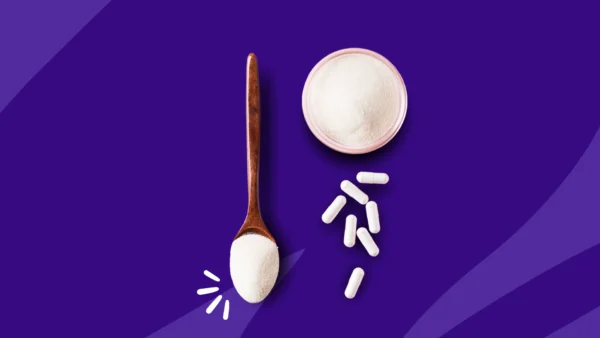Getting older certainly brings its fair share of benefits—with more life experience people tend to make wiser decisions, you have more self-confidence, and spending time with friends and family becomes even more precious. While people in their 40’s and beyond typically have a great deal of energy, that doesn’t mean your health should go unmonitored.
In fact, healthcare professionals recommend a specific set of tests that should be performed on a regular basis once you’ve reached 40 and over, and often call it the “over 40s health check.” These recommendations for health screenings at a certain age come from many groups of health experts, such as The American Cancer Society and The U.S. Preventive Services Task Force. As you age, these are several of the most important recommendations that impact your likelihood of living a long, healthy life.
RELATED: Questions to ask your doctor
What’s included in the over-40s health check?
Let’s find out what some of the regular tests include and review recent recommendations.
- Blood pressure screening: Did you know that the leading cause of death for both men and women in the United States is heart disease? With roughly 630,000 people dying each year from this condition, it’s crucial to get your blood pressure checked regularly. Hypertension has been called the silent killer for a reason—often people with hypertension have no warning signs while it silently does its damage It is a major risk factor for heart disease, stroke, and kidney disease, so it’s important to know your numbers.
- Cholesterol screening: High cholesterol is another quiet killer, often with no symptoms. Genetic factors may be the most powerful cause of cholesterol problems, but dietary factors and being overweight can contribute. After age 40, your doctor typically calculates your 10-year heart disease risk using your blood pressure, cholesterol, sugar and other factors. If you have a 10 percent or higher chance of a heart attack in the next 10 years, it’s time to lower your risk.
- Diabetes check: Although the American Diabetes Association recommends that all adults should begin screening for diabetes at age 45, a blood sugar evaluation is an important part of the 10-year heart disease risk calculation. This common condition can bring a host of health complications along with it, including kidney disease, stroke, and heart disease. A simple blood test is all that’s needed.
- Skin check: Guidelines for skin cancer screenings vary, but if you’ve reached age 40 and have never visited a dermatologist, it might be a wise idea. Nearly 20% of Americans will develop skin cancer in their lifetime, so working with your doctor to monitor moles and other discolorations over time can help to identify issues before they become worse.
- Eye exam: An eye exam isn’t just about checking to see if you need glasses, as 43 million Americans will have some form of serious eye disease by the year 2020. If you already rely on vision correction you’re probably used to seeing your eye doctor annually, but once you’ve reached age 40 it’s even more crucial to receive regular examinations.
- Mammogram: Recent studies have shown that if women began breast cancer screenings at age 40 with a mammogram, almost 30,000 lives would be saved annually. While many recommendations don’t stress the importance of this procedure until age 50, a family history of breast or other cancers might be cause for making this a priority in your 40s.
- Cervical cancer screening: Recommendations for cervical cancer actually begin as young as age 21, but the frequency of recommended checkups changes as you age. According to the American Cancer Society, both a pap test and an HPV test should be performed every 5 years after age 40 unless you are at an increased risk.
- Prostate screening: While it may not be as widely discussed as breast cancer is for women, prostate cancer is a huge medical concern for men. You should have a discussion with your healthcare provider about whether to screen for prostate cancer. Risk factors for this cancer include being African American and having a family history.
- Colorectal cancer screening: It is clear that screening for colorectal cancer starting at age 50 saves lives. You should discuss this with your healthcare provider at 40 since many people are at higher risk and should consider screening earlier. There are several tests to screen for this, each with some pros and cons. As always, discuss with your provider.
There are many other issues that may you may want to discuss with your doctor when you’re approaching age 40. According to the U.S. Preventive Services Task Force, these include:
- HIV screening
- Depression screening
- Risk of sexually transmitted infections
- Risk of domestic violence
- Tobacco use
- Unhealthy alcohol use
- Healthy diet and physical activity to prevent cardiovascular disease.
Turning 40 is often viewed as a milestone, and for many it signals the start of a new chapter in life. Along with the excitement that your 40s brings, make sure to keep your health a top priority and visit your healthcare professional for an over-40s health check. In many cases, early detection and intervention is key to a long and healthy life.
Also read:











